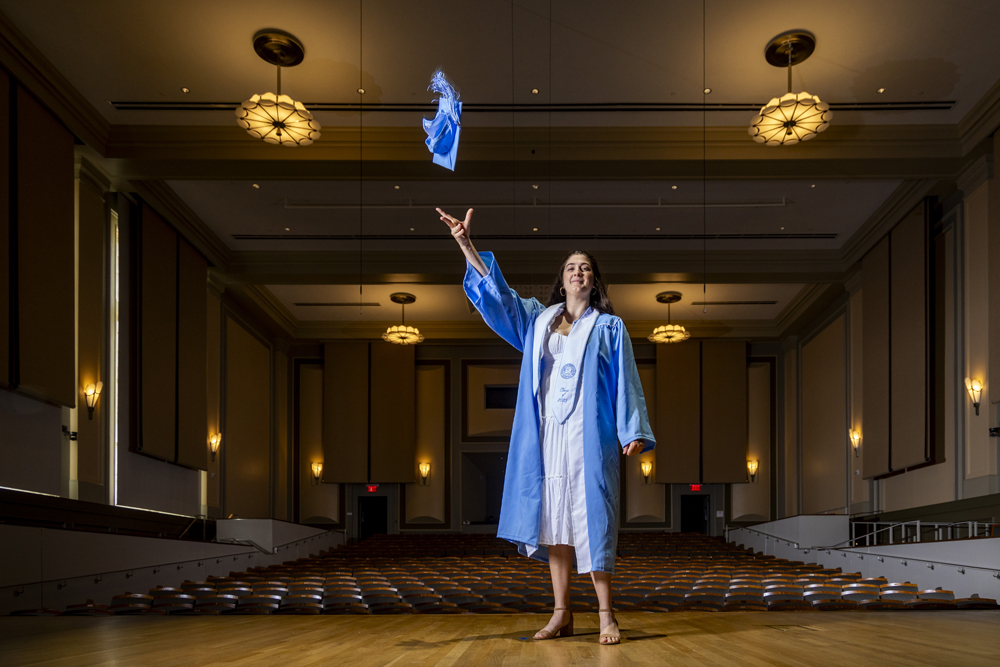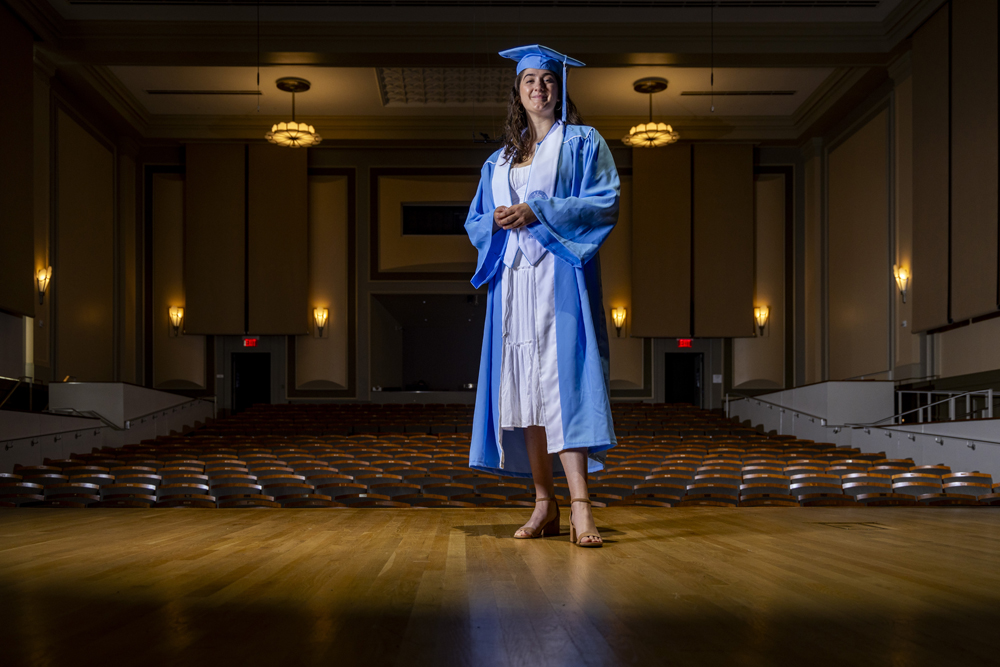
(Megan Mendenhall / Office of Research Communications)
by Megan Mendenhall, endeavors
Research gives UNC-Chapel Hill undergrads access to unexpected places: the stage of Moeser Auditorium, the shores of Jordan Lake, and a lab bench in Marsico Hall.
This May, thousands of Carolina undergraduates will get their degrees. Their participation in research has shaped their college careers and prepared them to help solve some of the world’s most significant challenges.
Carrina Macaluso wasn’t looking for a research project. Instead, it found her via her Spotify playlist and lead her on a musical scavenger hunt.
While listening to music one October afternoon, the UNC-Chapel Hill vocal performance student was captivated by an unfamiliar song.
“The singer’s voice was unlike any that I had heard before,” Macaluso says.
The mesmerizing voice belonged to Connie Converse, a little-known American composer, songwriter, musician, and writer who was active during the 1950s and then mysteriously disappeared in 1974.
Intrigued, Macaluso delved into Converse’s discography and discovered that, in addition to writing songs for voice and guitar, Converse was also a composer of classical art songs. She had even created a song cycle for voice and piano called “The Cassandra Cycle,” which tells the story of Cassandra from Greek mythology.

(Megan Mendenhall / Office of Research Communications)
After hearing the cycle, Macaluso was eager to perform it, but she needed to find the sheet music first. Through her research, she learned of Howard Fishman, an author writing a biography on Converse. On a whim, she emailed him to ask if he knew where to find the score.
To her amazement, he responded with copies of Converse’s original, handwritten manuscripts. He also connected her with a producer in New York who was actively working on commissioning a digitized version of the songs.
Macaluso then enlisted the help of music professor Naomi André to work on the research project with her. André agreed, and Macaluso spent her winter break reading Fishman’s biography and learning Converse’s music in preparation for her performance.
“It was fun getting to work from the ground up and building my own interpretation from Converse’s manuscripts,” Macaluso says. “The handwritten manuscripts were helpful. You can see all of the little notes that Converse makes for how to perform the song, including tempo markings for how fast or slow you should sing.”
In March, Macaluso gave an hour-long lecture and recital on Converse’s work and performed “The Cassandra Cycle.”
“This cycle has really just struck a chord with me, and I would love to record these songs at some point in my career,” she says.
This fall, Macaluso will attend the University of Colorado Boulder to pursue a master’s degree in vocal performance and pedagogy.
View the full article featuring research by the Class of 2024 from across the University.
